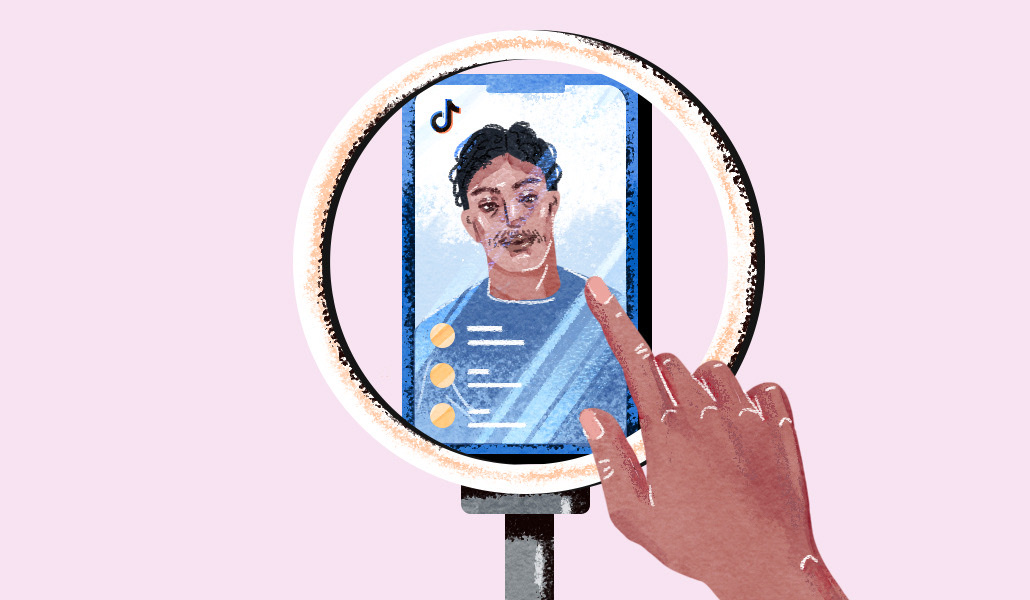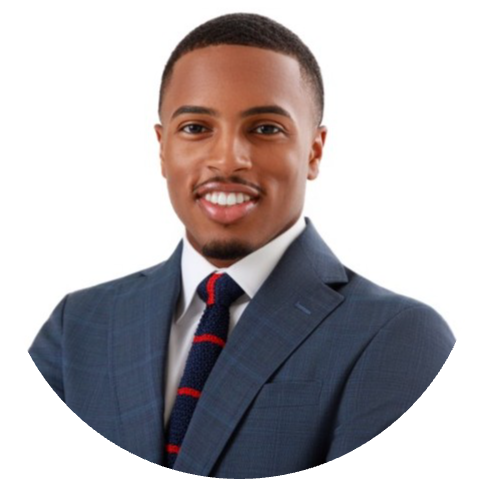TikTok Trend Watch: ‘The Corporate Baddie’ dishes on Gen Z’s work ethic

To many of us, he’s known as The Corporate Baddie, a sassy persona on TikTok who doesn’t hold back at poking fun at desk jobs using a Gen Z lens.
But behind the character is 24-year-old DeAndre Brown, who not only has a following of a million people on the app, but has created his own consulting agency GenXL Consulting and has hosted his own TedTalk. He is part of a growing group of individuals who have made a living off of workplace-related videos on social media that have led to bigger careers, often longer than their own short stints in corporate. Through GenXL Consulting, which stands for “generation extra large” referring to Gen Z, he helps those who aspire to climb the ranks in corporate America with services in professional development, and corporations on how they can retain and source Gen Z workers in their place of employment.
We spoke to Brown to learn more about what inspires his content, how he’s grown his consultancy, and what’s next for him.
Answers were edited for clarity and flow. For an inside look at the interview, head over to WorkLife’s TikTok account for extended coverage.
You did have a short stint in corporate. Can you tell me a little bit about it?

I graduated from college in 2021, but before that, when I was a junior, I interned at CitiGroup during the pandemic remotely. After that, I got offered a full-time job when I was a senior. I started working there right after I graduated college. I was there 10 months, so it was quick. I talk about this a lot. I remember when I first had to do meetings with higher-ups at the company and I asked how long they were at the company and they said 10 years. I remember being like ‘10 years?!’ I couldn’t even finish 10 months.
Was 10 months enough time to gather inspiration for your TikTok videos?
Making the pivot to TikTok wasn’t hard because I was doing it while I was working. All of my inspiration was coming from actual scenarios that were taking place at work. I remember there was one time I was asked to jump on an additional project that was outside of my scope of work, and I made a TikTok about it. The way I said it on TikTok was more dramatic, but it was the same scenario, I just used TikTok to say what I really wanted to say to my employer. The reason I ended up leaving was because I felt like I wanted to do my own thing and take the leap. Worst comes to worst, I can go back to corporate. Corporate is not going anywhere.
I was on a huge high at the time. I had become a celebrity at my place of employment. I would get Skype messages all day from people saying they saw my videos. It had become a big conversation at my place of employment and I was getting interviews. It got to a point where HR reached out to me and they were asking me questions and walking me through the social media guidelines and how I was basically breaking them. It made me decide ‘OK, do I want to put this social stuff on the back burner and really just get back to work? Or, do I want to just see where this takes me?’ So I quit. That conversation I had was what I needed to say OK it’s time.
That’s a very Gen Z mindset to just quit because we know corporate will always be there. Do you think other Gen Zers are like that?
A lot of other Gen Zers are like that. People ask me about this all the time and I started to pay attention to my friend group more, and some of them do have older mindsets. One of them feels like you have to have the 9 to 5, health insurance, and all those things. I’m like, you know you can still have all those things when you work for yourself. They want to have the same mindset as me, but they’re still hearing from their parents and older people that mindset. I’m trying to explain to them like ‘look, you have to get rid of all of that and start thinking like this.’ These opportunities are not going anywhere. You still have your experience and degree, just start working toward your own thing and see where that lands you. Gen Z does think like that. We do see it on social media where people quit with no plan.
And then I really hate when generations say that we’re lazy. I feel like the reason they say we’re lazy is because they don’t understand or want to try to understand the way in which we go about working. The way we like to work in corporate spaces and settings has a lot more freedom attached to it, which I think helps with more productivity in the workforce. If you have me sitting at a desk all day and I’m not doing anything, doesn’t that seem like more of a waste of time? Maybe I’m not in the office for a few hours after I’ve completed everything that needs to be completed. I added my input and values where things needed to be added. Why am I sitting here wasting time, rotting away, when I can be using this time to reset so I’m ready for the next thing thrown my way?
So I don’t think we’re lazy, and I do think we work hard. It’s just they try to place it as lazy simply because we’re not working how they work.
Your videos touch on what it means to set boundaries, like closing your laptop at 5 p.m. Why is that something you wanted to highlight?
That’s where the importance of resetting comes into play. When I was in corporate, my team was in New York but I was in Dallas. I would get calls at 6 a.m. At first, I felt obligated to answer because I was afraid if I don’t answer, I’m going to be in trouble. I think it really took a toll on me. It made me start to not enjoy the work that I was doing. But when you really stay within the constraints of work and realize OK, I’m working only within this time, it’s important. Granted, you might need to do things outside of work occasionally, but I think setting that boundary is helpful. We need to have that life-work balance — I always say life work and not work life, because even though they go together, I think that life should always come before work.
You’ve introduced the persona of a Gen Z manager in your videos. Can you tell me more about this series?
I’m going to do more of this because I’m curious to see how people react. So far, a lot of people in the comments were saying things like ‘where do I apply?’ and ‘how can I sign up for this job?’ when there is a Gen Z manager. One of the clients I have with my consultancy, she’s 26 years old and a manager of a team of 12 people. We were having a conversation about being a manager and being Gen Z. She was explaining how when you have a good team it’s not that hard to allow them to put themselves first because they’re still making sure they get their work done. I think as Gen Z starts to get more into leadership positions, communication will be valued and trying to understand the people you work with, and not just saying ‘this is what we’re doing’ or ‘this is how it’s being done.’ You want somebody that listens to you and hears what you’re saying.
